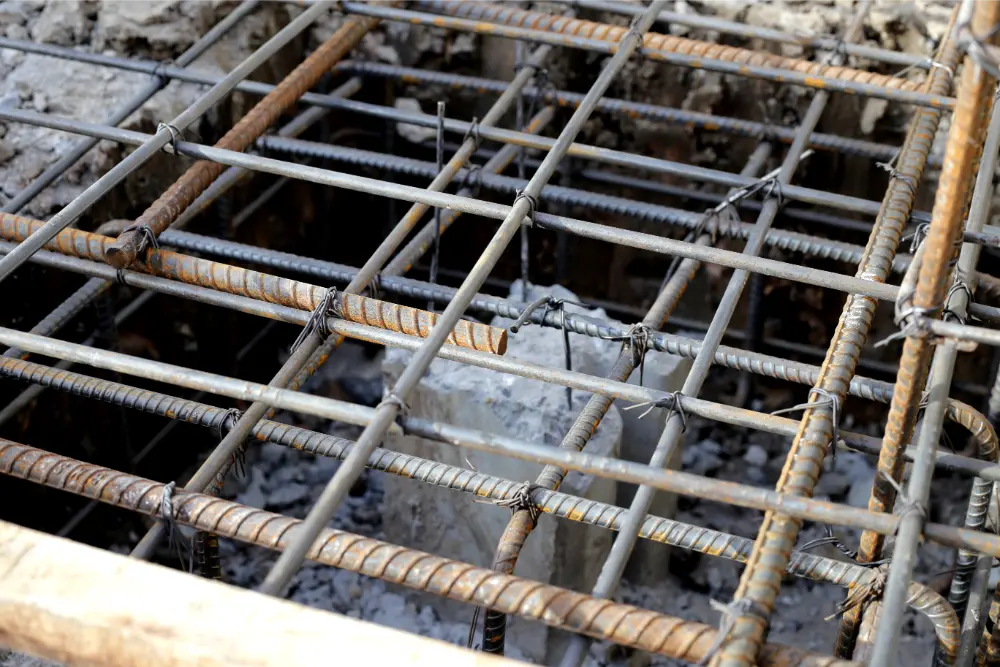The Use of Steel in Modern Foundation Engineering

Steel has become an indispensable material in foundation engineering, transforming the way foundations are designed and constructed in modern civil engineering projects. Its unique properties of strength, ductility, and durability make it an ideal choice for supporting various structures, from residential buildings to large-scale industrial facilities. This article explores the essential role of steel in foundation engineering, highlighting its integration with geotechnical principles and its advantages in different foundation types.
Importance of Steel in Foundation Engineering
In foundation engineering, selecting appropriate materials is crucial for ensuring the stability and longevity of any structure. Steel provides several benefits:
- High tensile strength allows it to carry heavy loads without deformation.
- Flexibility helps absorb and dissipate forces caused by ground movement.
- Resistance to corrosion when properly treated helps extend foundation life.
- Compatibility with concrete, enabling the creation of reinforced concrete foundations.
Steel is commonly used in reinforcement bars (rebar), pile casings, and structural elements that form the backbone of many foundation systems.
Geotechnical Considerations for Steel Foundations
A geotechnical engineer plays a critical role in determining how steel should be incorporated into foundations based on soil and subsurface conditions. The soil's bearing capacity, settlement potential, and groundwater presence all influence decisions on steel reinforcement:
- In areas with poor soil conditions, steel piles can be driven deep into the ground, providing stable support.
- For expansive or shifting soils, steel helps improve the foundation's ability to withstand movements.
- Proper geotechnical analysis ensures optimal design and cost-efficiency by recommending suitable foundation types involving steel.
Steel in Shallow Foundations
While often associated with deep foundation systems, steel reinforcement is equally vital in shallow foundation designs such as spread footings and mat foundations. Reinforced concrete slabs using steel rebars increase the foundation's resistance to bending and cracking:
- Distributes structural loads evenly over the soil.
- Minimizes risks of differential settlement.
- Enhances durability against environmental stresses.
Steel reinforcement allows shallow foundations to support heavier loads and span wider areas, broadening their application.
Excavation and Installation of Steel Foundations
Excavation is a critical stage in foundation works where the foundation engineering team must carefully coordinate the installation of steel components. Proper handling and placement of steel ensure structural integrity:
- Steel elements need precise alignment before concrete pouring.
- Temporary corrosion protection is applied to prevent damage during excavation.
- Coordination with geotechnical data ensures excavation reaches the necessary depth for pile or footing installation.
The interaction between excavation, steel work, and soil properties determines the foundation's success.
Role of Steel in Civil Engineering Foundations
The advancements in civil engineering owe much to the integration of steel in foundation systems. Steel's adaptability allows engineers to innovate foundation designs tailored to specific project demands:
- Hybrid foundations combining steel piles with concrete caps.
- Modular steel foundations for rapid construction in urban environments.
- Use of steel fiber-reinforced concrete for added strength and crack control.
Such innovations make steel a cornerstone material in modern foundation engineering, supporting sustainable and resilient infrastructure development.
Conclusion
Steel continues to revolutionize foundation engineering by enhancing the strength, durability, and adaptability of foundation systems. Whether in shallow foundations or deep pile installations, steel's role is pivotal in addressing geotechnical challenges and meeting civil engineering demands. For more detailed insights into the principles and practices of foundation design incorporating steel and other materials, visit this comprehensive resource on foundation engineering.
Explore the possibilities steel offers in your next project and strengthen your foundation from the ground up!